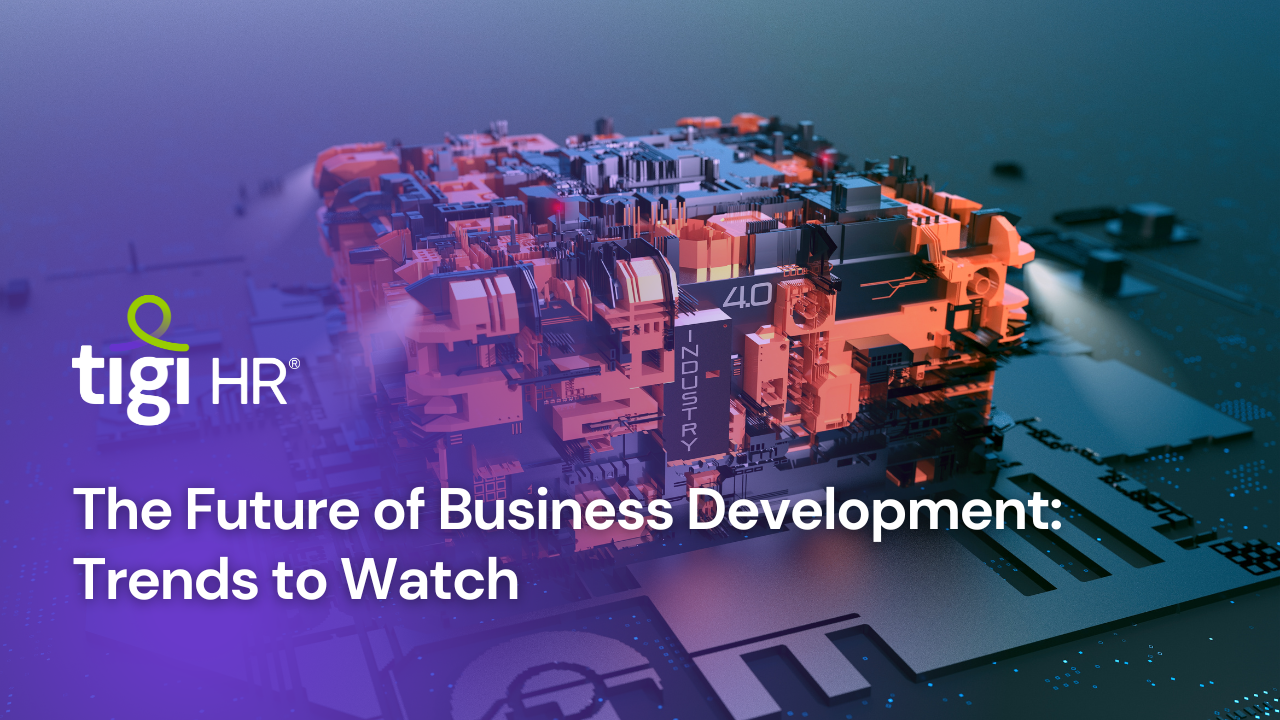The world of business development is ever-evolving, shaped by technological advancements, market dynamics, and shifting consumer preferences. As we look ahead, the future of business development promises to be both exciting and challenging. To stay competitive and relevant in this dynamic landscape, it’s crucial to anticipate and adapt to emerging trends. In this article, we will explore the key trends that will define the future of business development, providing insights, statistics, and strategies to help businesses thrive in this rapidly changing environment.
Section 1: The Evolution of Business Development
1.1 From Traditional to Digital
Business development has come a long way from its traditional roots of cold calls and face-to-face meetings. The rise of digital technology has transformed the way companies connect with prospects, build relationships, and drive growth.
1.2 The Role of Data
Data analytics and artificial intelligence (AI) have emerged as powerful tools in business development. These technologies enable businesses to make data-driven decisions, personalize their approaches, and predict market trends.
Section 2: Key Trends Shaping the Future of Business Development
2.1 Digital Transformation
The COVID-19 pandemic accelerated digital transformation efforts across industries. According to a report by McKinsey, companies have accelerated their digitalization by three to four years in just a few months. This trend is likely to continue, with businesses embracing digital tools and platforms for communication, marketing, and sales.
2.2 Personalization at Scale
Customers now expect highly personalized interactions with brands. A study by Salesforce found that 84% of customers say being treated like a person, not a number, is very important to winning their business. Business development professionals are leveraging AI and data analytics to deliver personalized experiences at scale.
2.3 AI-Powered Insights
AI is revolutionizing the way businesses understand their customers and prospects. AI algorithms can analyze vast amounts of data to provide valuable insights, helping businesses identify opportunities, predict market trends, and make informed decisions.
2.4 E-commerce Expansion
E-commerce is no longer limited to retail. B2B e-commerce is on the rise, with companies adopting online sales and procurement processes. According to Statista, global B2B e-commerce sales are projected to reach $20.9 trillion by 2027.
2.5 Remote Work and Global Reach
Remote work has become the new normal, expanding the reach of business development efforts. Companies can now engage with clients, partners, and prospects from around the world, breaking down geographical barriers.
Section 3: Strategies for Embracing Future Trends
3.1 Invest in Digital Skills
To thrive in a digital-first business environment, businesses and professionals must invest in digital skills. Training programs and courses can help teams stay updated on the latest tools and technologies.
3.2 Leverage Data Wisely
Data is a goldmine of insights, but it must be managed and used responsibly. Implement data governance practices to ensure data quality and compliance with regulations like GDPR.
3.3 Customer-Centric Approach
The future of business development revolves around understanding and meeting customer needs. Develop a customer-centric mindset, use data to personalize interactions, and actively seek customer feedback.
3.4 AI Integration
Embrace AI as a strategic partner in your business development efforts. Invest in AI-powered tools that can automate tasks, provide insights, and enhance decision-making.
3.5 Cross-Functional Collaboration
Business development should no longer operate in isolation. Foster collaboration between sales, marketing, customer service, and other departments to create a seamless customer experience.
Section 4: Challenges and Considerations
4.1 Data Privacy and Security
With the increased reliance on data, businesses must prioritize data privacy and security. Breaches can lead to significant reputational and financial damage.
4.2 Continuous Learning
The rapid pace of technological change requires professionals to be lifelong learners. Continuous education and skills development are essential to staying competitive.
Conclusion on the future of business development
The future of business development is marked by digital transformation, personalization, AI-powered insights, and global reach. To thrive in this evolving landscape, businesses and professionals must adapt, invest in digital skills, and prioritize a customer-centric approach.
The trends outlined in this article offer opportunities for growth and innovation. Embrace them as tools to navigate the challenges and uncertainties of the future. As the business development landscape continues to evolve, those who anticipate and embrace change will be best positioned to succeed.
Statistics and Insights:
- According to McKinsey, companies have accelerated their digitalization efforts by three to four years due to the COVID-19 pandemic.
- Salesforce reports that 84% of customers say being treated like a person, not a number, is very important to winning their business.
- Statista projects that global B2B e-commerce sales will reach $20.9 trillion by 2027.
- AI adoption is on the rise, with Deloitte reporting that 37% of organizations have implemented AI in some form.
- According to Gartner, global IT spending is expected to reach $4.2 trillion in 2022, driven by digitalization efforts.
- The global business process outsourcing (BPO) market is expected to reach $405.6 billion by 2027, according to Grand View Research, Inc. This highlights the growing importance of outsourcing in business development strategies.
Also Check: Bussiness development in Digital Age





